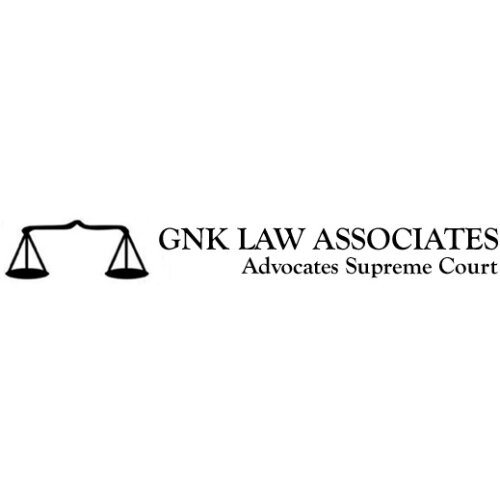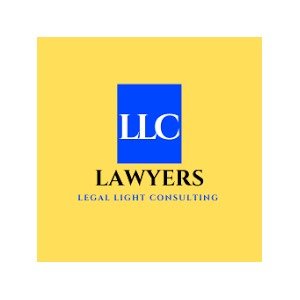Best Bankruptcy & Debt Lawyers in Delhi
Share your needs with us, get contacted by law firms.
Free. Takes 2 min.
List of the best lawyers in Delhi, India
India Bankruptcy & Debt Legal Questions answered by Lawyers
Browse our 2 legal questions about Bankruptcy & Debt in India and read the lawyer answers, or ask your own questions for free.
- Loans
- Currently I am multiple unsecured loans. Due to mental health issues I lost my job and all assets. So should I go for Individual bankruptcy?
-
Lawyer answer by Quartz Legal Associates
Based on the facts shared, it is explained that at present, individual bankruptcy in India is not governed by the Insolvency and Bankruptcy Code (IBC) because the provisions relating to ordinary individuals have not yet been implemented by the Government....
Read full answer - Sir, I have to take my payment from my customer party & he is not paying
- Sir, I'm doing textile business & have supplied fabric to my party amt is 4,12,536/00. My customer is not giving payment still he is capable.
-
Lawyer answer by Quartz Legal Associates
Based on the facts stated, it is my considered opinion that you have supplied fabric worth ₹4,12,536 to your customer in the ordinary course of your textile business, the goods have been duly delivered and accepted, and despite being financially...
Read full answer
About Bankruptcy & Debt Law in Delhi, India
Bankruptcy and debt law in Delhi, as in the rest of India, is primarily governed by the Insolvency and Bankruptcy Code, 2016 (IBC). This comprehensive legislation covers insolvency for individuals as well as corporate entities. It provides a legal framework for resolving insolvency in an orderly, time-bound, and efficient manner, aiming to protect creditors' and stakeholders' interests while ensuring debtor relief. Although financial issues are sensitive and personal, understanding the legal protocols and options available can be instrumental in navigating these challenging waters. Delhi, being the capital city, hosts a variety of legal experts specializing in bankruptcy and debt resolution, making legal aid accessible to those in need.
Why You May Need a Lawyer
There are numerous situations where individuals or businesses may require the assistance of a lawyer specializing in bankruptcy and debt. Common scenarios include struggling to repay debts, receiving legal notices from creditors, facing property foreclosure, or contemplating company liquidation. A lawyer can help individuals or businesses understand their rights, negotiate with creditors, and represent them in insolvency proceedings. Moreover, legal professionals can guide debtors through debt restructuring processes to avoid insolvency or help formulate plans to protect personal assets.
Local Laws Overview
The Insolvency and Bankruptcy Code, 2016, plays a vital role in the debt law landscape of Delhi. Some key aspects include:
- Corporate Insolvency: Allows creditors or debtors to initiate insolvency proceedings against a company for undisputed default amounts.
- Bankruptcy for Individuals and Partnership Firms: Provides a legal mechanism to declare bankruptcy for individuals and partnerships unable to pay their debts.
- Resolution Process: Establishes the process for resolution or liquidation, managed by licensed insolvency professionals.
- Committees of Creditors: Gives creditors a structured role in the resolution process for corporate insolvency.
- Moratorium Period: Once insolvency is admitted, protection from debt recovery actions by creditors is offered during the resolution process.
Frequently Asked Questions
What is the first step if I can’t pay my debts?
If you're unable to meet your debt obligations, the first step is to consult with a legal expert to understand your options. Engaging with lenders to restructure debt might be viable. A lawyer can help assess whether debt relief or initiating insolvency proceedings is suitable for your situation.
Can bankruptcy completely eliminate my debts?
While bankruptcy can discharge many types of debts, some debts like child support, fines, and certain taxes may not be eliminated. Legal advice can help identify which debts can be discharged and provide a plan to manage remaining obligations.
What is the difference between insolvency and bankruptcy?
Insolvency is a financial state where you are unable to pay debts as they come due, while bankruptcy is a legal proceeding to resolve insolvency, which involves either resolving debt with creditor agreement or liquidation of assets.
How long does the bankruptcy process take in Delhi?
Under the IBC, the corporate insolvency resolution process should ideally be completed within 180 days, with a possible extension of 90 days. However, individual bankruptcy processes can vary based on the complexities involved.
What are the legal implications of declaring bankruptcy in Delhi?
Declaring bankruptcy carries serious implications such as impacting credit ratings significantly and potentially affecting future borrowing ability. Professional legal consultation is necessary to weigh these impacts against the relief benefits.
Can a creditor file for bankruptcy against me?
Yes, a creditor can initiate insolvency proceedings if the debt involved is above the monetary threshold specified in the IBC and remains unpaid without dispute. Legal advice can help in navigating these legal challenges.
What happens to my property during bankruptcy?
The bankruptcy process usually involves liquidating assets to repay creditors. However, certain "exempt" assets may be protected. Legal counsel can offer guidance on exemptions and asset protection.
Are debt counseling services effective?
Debt counseling can provide valuable guidance in managing finances, but they may not offer legal solutions. When facing severe debt issues, combining legal and financial advice can be most effective.
How is debt restructured in a corporate setting?
Debt restructuring in corporates often involves negotiations to extend payment terms, reduce interest rates, or swap debt for equity. Insolvency professionals play a critical role in formulating and enforcing restructuring plans.
Where can I find qualified bankruptcy lawyers in Delhi?
Finding a qualified bankruptcy lawyer involves researching professionals with experience in insolvency cases. The Bar Council of Delhi and legal referral services can offer guidance in identifying reputable lawyers.
Additional Resources
For individuals seeking more information on bankruptcy and debt laws, the following resources can be invaluable:
- Insolvency and Bankruptcy Board of India (IBBI)
- Delhi Legal Services Authority (DLSA)
- Bar Council of Delhi for lawyer referrals
- Consumer Helpline for debt-related issues
- Licensed Insolvency Professionals and Firms
Next Steps
If you are facing issues related to bankruptcy and debt, here are the steps you may consider:
- Consult a professional lawyer with experience in insolvency law to assess your situation.
- Gather all necessary financial documents and debts details to facilitate legal consultation.
- Research and reach out to local legal aid organizations if cost is a concern.
- Stay informed about your legal rights and obligations under the IBC and related local laws.
- Develop a plan with your lawyer to address the debt issues, whether through negotiation, restructuring, or formal insolvency proceedings.
Lawzana helps you find the best lawyers and law firms in Delhi through a curated and pre-screened list of qualified legal professionals. Our platform offers rankings and detailed profiles of attorneys and law firms, allowing you to compare based on practice areas, including Bankruptcy & Debt, experience, and client feedback.
Each profile includes a description of the firm's areas of practice, client reviews, team members and partners, year of establishment, spoken languages, office locations, contact information, social media presence, and any published articles or resources. Most firms on our platform speak English and are experienced in both local and international legal matters.
Get a quote from top-rated law firms in Delhi, India — quickly, securely, and without unnecessary hassle.
Disclaimer:
The information provided on this page is for general informational purposes only and does not constitute legal advice. While we strive to ensure the accuracy and relevance of the content, legal information may change over time, and interpretations of the law can vary. You should always consult with a qualified legal professional for advice specific to your situation.
We disclaim all liability for actions taken or not taken based on the content of this page. If you believe any information is incorrect or outdated, please contact us, and we will review and update it where appropriate.
Browse bankruptcy & debt law firms by service in Delhi, India
Delhi, India Attorneys in related practice areas.










